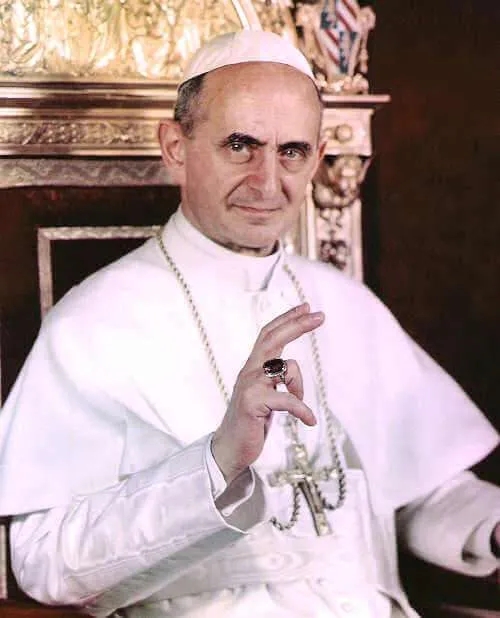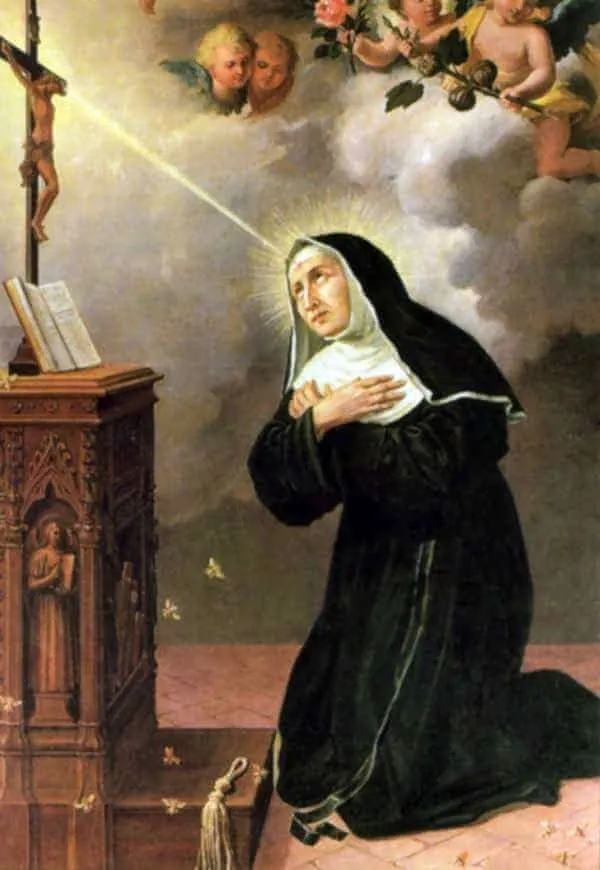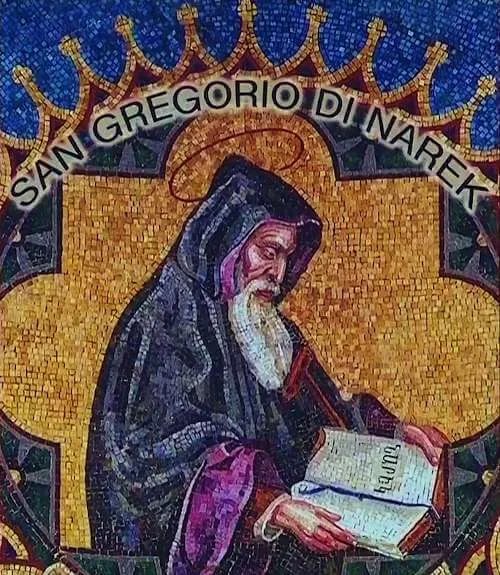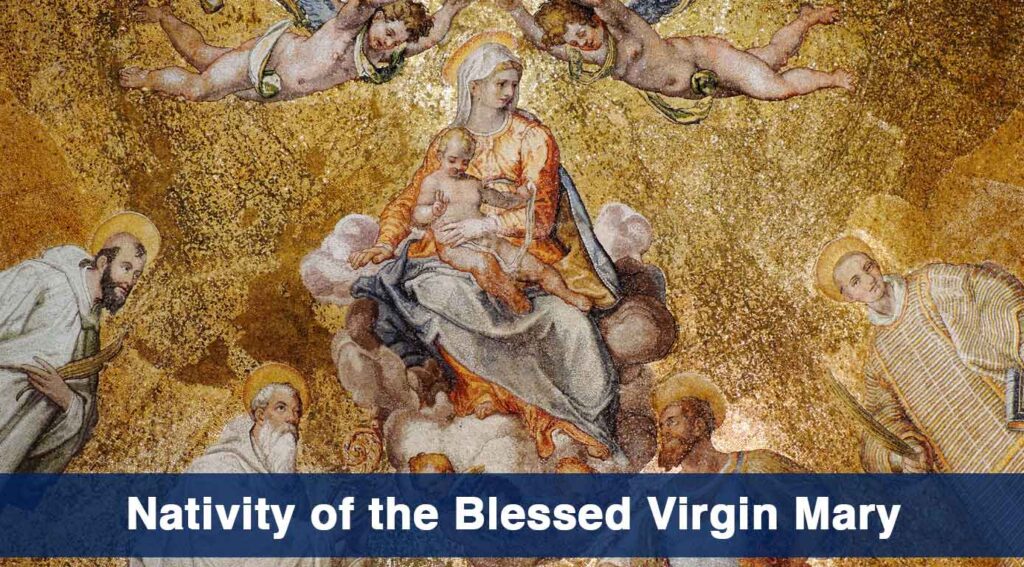1515–1595; Patron Saint of Rome, joy, comedians, and artists; Canonized by Pope Gregory XV on March 12, 1622
Philip Romulus Neri, the third of five children, was born into a middle class family in Florence, modern-day Italy. As a child, his friends and family often called him, “Pippo Buono” (good little Philip), because of his cheerfulness and moral character. Philip’s mother died when he was only about five years old, so he and his two sisters were cared for by their grandmother. He was well educated by the Dominican friars in Florence and later in life acknowledged the good influence they had upon him. By the age of eleven, Philip was known for his piety and prayerfulness, and for making frequent visits to the churches in Florence. When he turned eighteen, Philip was sent to live with his father’s wealthy cousin, Romolo, whom he referred to as his uncle, near the Benedictine monastery of Montecassino. Romolo had no children, so Philip was sent to him to become his heir.
Shortly after moving in with his uncle, Philip had a profound conversion. This conversion might have taken place in a seaside chapel called the Sanctuary of the Holy Trinity. Legend holds that the huge cliff overshadowing the chapel was split in two when Jesus died, opening a sanctuary overlooking the sea. Philip’s conversion had already been in full motion when he left Florence to live with his uncle, but once he arrived at his uncle’s and faced the real possibility of inheriting enough to live a stable life in the world, Philip had to make a choice. Did he want a comfortable life as a businessman, or did he want to follow the Holy Spirit Who was tugging on his heart? He chose the latter.
In 1533, Philip thanked his uncle and informed him that the Holy Spirit wanted him to go to Rome. He arrived penniless but found housing in the attic of a customs official. He paid for his simple accommodations by being a tutor for the man’s two sons. In Rome, Philip frequented the holy sites, prayed at the tombs of the Apostles Peter and Paul and the other Roman martyrs, and waited for God to direct him. His food was simple, usually only bread and water once a day. He enrolled in university where he studied philosophy, theology, and human sciences. While studying theology at the University of Saint Augustine, Philip was interiorly moved as he gazed at a large crucifix. As a result, he quit his studies, sold his books, and dedicated himself to full-time prayer. For the next ten years, until the age of thirty-three, Philip lived an eremitical life, often praying in the catacombs of the martyrs, frequently making all-night vigils. He refrained from idle pastimes, dividing his time between prayer and charity. He visited hospitals, conversed about holy subjects with the poor, converted sinners, and injected humor and laughter wherever he went. This one-on-one ministry as a layman, coupled with his life of prayer, set the foundation for what was to come next.
Around the year 1544, just before the Solemnity of Pentecost, Philip was praying in a catacomb and had a profound mystical experience. A ring of fire descended and entered his mouth, settling in his heart. The flame filled him with such an intense love for God that he fell to the ground and cried out, “Enough, Lord, I can bear it no more!” When he recovered, he noticed a visible swelling on his chest over his heart. For the rest of Philip’s life, especially when engaged in prayer and holy conversation, his heart would noticeably palpitate. Though some thought this to be a physical ailment, others saw it as the result of divine love filling his heart and flowing over. It is said that when people saw Philip, they were drawn to him, and especially drawn to his heart. A post-mortem exam revealed that he had an enlarged heart, so much so that two of his ribs were dislocated.
After this mystical experience, Philip began to engage in a more active apostolate as a street preacher in Rome. His approach to “preaching” was much different than that of others. Rather than railing against the immoralities of the day, he gathered young men around him as his companions, and with his joyful and affectionate personality, began to inspire others with the joy of following Christ. He and his companions spent much time serving the sick in the hospitals and doing many menial acts of service, such as cleaning, making beds, conversing, and helping in any way they could. He often started his conversations by saying, “Well, my brothers, when shall we begin to do good?” Doing good, with joy and enthusiasm, drew many to listen to him and follow his example. Philip converted one soul at a time to the life of virtue.
In 1548, a priest who served as Philip’s confessor assisted him in forming the Confraternity of the Holy Trinity. Members would regularly meet for prayer, especially Eucharistic adoration, and engage in holy conversations and comradery. In 1551, again with the encouragement and assistance of his confessor, Philip agreed to become a priest at the age of thirty-five, joining a community of priests at the Church of San Girolamo della Carita. As a priest, Father Phillip quickly entered into a new ministry that would occupy him for the rest of his life. He became a confessor to countless sinners, poor and rich alike. At first, he spent a few hours every day in the confessional, but eventually he would spend most of the day. As a confessor, Father Philip had profound spiritual gifts. He could read souls, identify sins that needed to be confessed, give supernatural counsel, perform miracles, and speak words of divine love that flowed directly from the Heart of Christ.
Within a year of his ordination, Father Philip began to gather young men in his room for prayer and holy conversation. They would talk, read about the saints, share meals, sing songs, go on walks, and pray together. Eventually, the number of his followers grew large, and he built an oratory for their meetings. Over the next fifteen years, this loose association continued to grow and in 1575, with the approval of the pope, Father Philip founded the Congregation of the Oratory whose ministry included prayer, preaching, and the sacraments.
Saint Philip Neri was a true missionary who re-evangelized the Christians of Rome, one soul at a time. His miracles, ecstasies during prayer, and ability to read souls were enough to convince everyone of his holiness. But setting those supernatural phenomena aside, it was the joy that radiated from his heart, a heart united to the Divine Heart of Christ, that was the surest sign of his sanctity. As we honor this saint of joy, ponder the importance of the gift of joy in your own life. Joy is a spiritual gift, not just a natural emotion. Joy comes from God alone. Open your heart to that gift, and ask Saint Philip Neri to pray that you receive it in abundance.
Source: https://mycatholic.life/saints/saints-of-the-liturgical-year/may-26—saint-philip-neri-priest/








